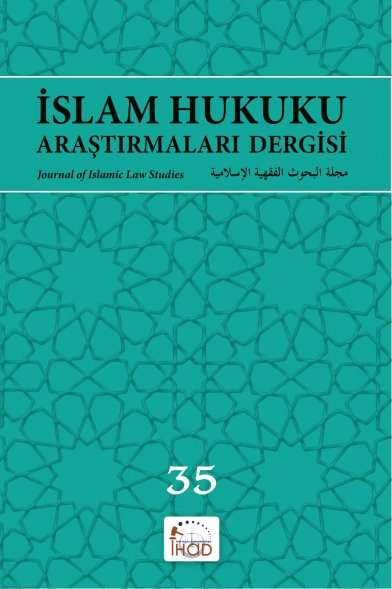Cessâs ve Serahsî’de Mütekellimin Metoduna Dair İzler Bağlamında Neshin Aklî Delilleri (Nesih-Bedâ Ayrımı)
Usul-i fıkıh yazımında iki temel eğilim vardır. Bunlardan biri “fukahâ” diğeri ise “mütekellimin” metodudur. Fukahâ metoduna göre usul yazan müelliflerin fakihlerden oluşması ve bu müelliflerin eserlerinde ilim, nazar, zan gibi kelam konularına yer vermemeleri, fukahâ metodu eserlerinin kelamî konulardan uzak olarak yazıldığı iddiasını da beraberinde getirmiştir. Genel kabul bu olmakla birlikte, bu iddianın aksini gösteren örneklere de rastlamak mümkündür. Zira Hanefî usulünün teşekkül döneminin iki önemli ismi olan ve aynı zamanda eserleri fukahâ metodunun ilk örnekleri olarak gösterilen Cessâs ve Serahsî’nin fıkıh usulüne dair eserlerinde birçok konunun kelam konularıyla ilintili olarak tartışıldığı görülmektedir. Bunlardan biri de nesih konusudur. Nitekim Cessâs ve Serahsî’nin özellikle neshin imkânını kabul etmeyenlere, hüsün-kubuh ve bedâ gibi kelam ilminin önemli konularından hareketle cevap verdiği görülmektedir. Sadece nesihle bedâ arasında benzerlik kurarak neshin imkânını inkâr edenlerin iddiaları ve bu iddialara Cessas ve Serahsî’nin verdiği cevapların ele alındığı bu çalışmanın asıl amacı ise fukahâ metoduna göre yazılan eserlerde kelam konularına yer verilmediğine dair iddiaların tartışmaya açık olduğunu ortaya koymaya çalışmaktır.
The Rational Proofs of Abrogation (Naskh) In The Context of Traces of Theologians’ Method In Al-Jassas and Al-Sarakhsi (Distinction of Naskh-Bada)
There are two main approaches in writing the methodology of Islamic Law (usul al-fiqh). One of them is jurisprudents’ (fuqaha) method and the other one is theologians’ (mutakallimun) one. The fact that most of writers writing in accordance to the fukaha’s method are jurisprudents and their works don’t include theological subjects such as ilm, nazar, zann etc. has brought about such a claim that these works are written free from theological issues. Although this has been mostly accepted, there are some examples rebutting it. Because we can come across many issues that are discussed in regard to theological issues in the usul works of al-Jassas and al-Sarakhsi who were two main figures of the formation period of Hanafite usul and also whose works were regarded as first examples of the fuqaha’s method. One of such issues is abrogation (naskh). Al-Jassas and al-Sarakhsi provided responses based on main subjects of Islamic theology (kalam) such as husn-qubh and bada, to those who especially deny the abrogation. The basic goal of the present study that deals with only the assertions of those who deny the abrogation by referring the similarity between naskh and bada as well as the responses of al-Jassas and al-Sarakhsi to them is to try to show the claim that the works written in accordance to the fuqaha’s method didn’t mention theological issues is disputable.
Keywords:
Islamic Law, al-Jassas, al-Sarakhsi, abrogation (naskh), bada, mutakallimun,
- ISSN: 1304-1045
- Yayın Aralığı: Yılda 2 Sayı
- Başlangıç: 2004
- Yayıncı: Gençleri Evlendirme ve Mehir Vakfı
Sayıdaki Diğer Makaleler
İslam Hukuk Düşüncesinde İktidar Güç İlişkisi
İslam Hukukunun Felsefi Mer’iyeti
Kur’ân-ı Kerim’in Işığında Lâiklik ve Demokrasi
Fıkhî Açıdan Altın Tahvili ve Altına Dayalı Kira Sertifikası İhracı
İslam Hukuk Metodolojisinde İstikrâ Yöntemi
Ebû Ca‘fer et-Tahâvî’nin Şafiî Mezhebinden Ayrılma Ve Hanefi İmamlarına Muhalefet Nedenleri
Toplumsal Hayatı Düzenleyen Kurallar ve Fıkıh İlmi
